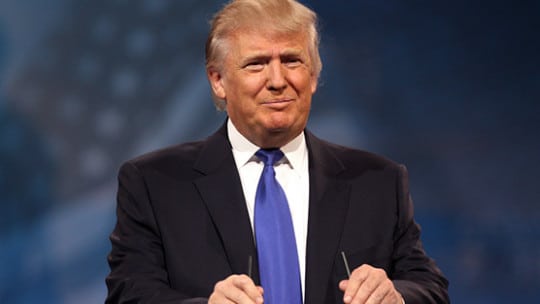

Former House speaker Tip O’Neill is most closely associated with the phrase “All politics is local.” That used to be the rule. But when a tweet can launch a boycott in the blink of an eye, it’s more like “All business is political.”
If you work on the communications team for any large company or well-known brand, you are listening carefully to every tweet or post anywhere on the planet. Not only might it influence your global reputation, but who knows when one might make you the target of the week in Washington?
Just ask the folks at Kaspersky Lab or Merck or, frankly, any of the other companies with a CEO who has served on one of President Trump’s advisory councils.
Merck
Imagine you’re head of communications for any of the companies that was invited to serve on one of the president’s advisory councils.
At first you probably saw it as a great opportunity for visibility and access to the powers that regulate your business. Then, as the president becomes increasingly controversial and unpopular, social media begins to simmer with calls for a boycott. Next, organizations like Color of Change are publicly pressuring your CEO to quit the council.
Then, two weekends ago, just as you were enjoying a lovely summer’s day, your phone starts to beep with news alerts of violent protests in Charlottesville, Va. Tragic though it was, chances are that you went on with your weekend.
While the president (on whose council your CEO still served), initially failed to condemn strongly neo-Nazis and other alt-right groups that fomented the violence, the bulk of the trouble began a few days later, during a press conference at Trump Tower. That’s when the president jousted with media over the morality of the neo-Nazi and white supremacist groups involved in the Charlottesville incident.
Sunday at the office
Chances are, you spent Sunday in a war room poring over social media and news reports deciding what your CEO would say. The decisions could not have been easy. Resigning meant giving up direct access to the president and risking his wrath.
Merck moved first. At 5 a.m. Monday, CEO Kenneth Frazier became the first of the prominent CEOs who would resign, stating that, “As CEO of Merck and as a matter of personal conscience, I feel a responsibility to take a stand.” As expected, the president voiced his anger with a series of tweets accusing Merck of being “a leader in higher & higher drug prices” and exporting jobs.
But social media expressed its support, and the CEOs of Under Armour and Intel soon followed Frazier.
On Tuesday, several of the remaining CEOs on the president’s Strategy and Policy Forum met by phone to discuss whether it was time to step down from the group.
Simultaneously the other major council, the Manufacturing Jobs Initiative, similarly was disintegrating as several CEOs resigned. After the president lashed out at the CEOs in his press conference Tuesday, more resignations followed.
Then, on a group conference call Wednesday, the Strategy and Policy Forum dissolved itself and the Manufacturing Jobs Initiative group followed suit immediately.
The president provided cover of sorts for those who’d yet to resign, claiming he’d dissolved both councils.
Social media analytics might reveal whether the net positives outweigh the outrage of the president’s followers, but in terms of brand image, these events showed that taking a stand against bigotry and hatred isn’t just good for your brand, it’s imperative.
Kaspersky Lab
“Would any one of you be comfortable with Kaspersky Lab’s software on your computers?” Senator Marco Rubio, Republican of Florida, asked the assembled intelligence leaders.
“A resounding ‘no’ for me,” said Dan Coats, the Director of National Intelligence. Coats’ five colleagues concurred, in turn. “No.” “No, senator.” “No, sir.” “No, senator.” “No, sir.”
Those are not words you want to hear when a U.S. senator asks a panel of senior intelligence officers a question about your product. The brand of cyber security software they were discussing is made by a Moscow-based company that was popular with manufacturers, who bundled it into their systems.
Currently the brand controls about 5% of the market for PC cybersecurity. But once the hacking of the U.S. presidential election became daily news, the Kaspersky brand was under a permanent cloud due to its close ties with Russian intelligence agencies.
In June news broke that the FBI questioned some of its employees, leading to speculation that it could be a target of special counsel Robert Mueller’s probe of the Russian affair.
In response, its CEO took to Reddit to fervently deny ties to the government of Vladimir Putin. While denials might be expected, Reddit is an unlikely venue to find CEOs conducting press conferences.
In July Bloomberg Businessweekbroke the news that it had obtained emails tying Kaspersky to the FSB, Russia’s version of the CIA.
Then, in an even more bizarre move, Kaspersky released a free version of its software just as the FBI was interviewing its employees, and the Congress was passing legislation barring the Pentagon from doing business with the company.
CONTACT: [email protected]


